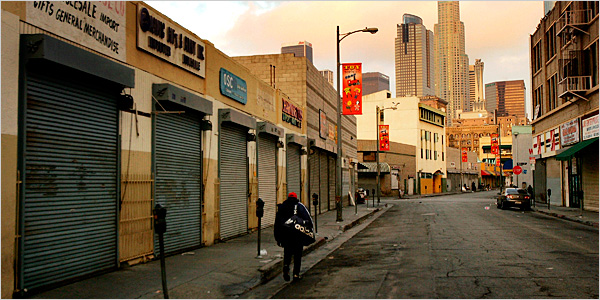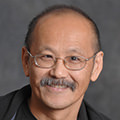Professor Paul Ong presented a case of Los Angeles in terms of income inequality and poverty. In fact, this is his second visit to the area. He and a group of his colleagues examined the income inequality in LA about a quarter century ago, and found a prevalent economic disparity in those days. Their report in 1989 spurred the public and media to pay more attention to the economic phenomenon. Now, Professor Ong reexamined whether the situation has been improved since then, because the recent housing and financial crises across the nation affected LA to a great extent and concomitantly renewed attention was called for. But, what he found is that there still exist a substantial degree of income inequality, in fact, even a greater disparity in the city.
In his study, he used Gini Index, which is widely used to measure income and wealth inequality. Before going deep into the examination of the city, he showed some historical changes in terms of economic disparity. To list a few points, he underlined economic disparity in 2000 was about 80% of that in 1920 when we had a Great Depression. In addition, income share of top tenth was about the same between the two times, and bottom 80% incomers’ non-home financial wealth decreased by about 50% from 1983 to 2012 (8.7% to 4.7%).
After the review of national, historical trend in economic disparity, he laid out findings in the city of LA. Comparing LA households with the US overall, he pointed out that income inequality increased substantially from 1980 to 2012 while it increased gradually in the US as a whole, and that disparity in wealth was even greater than that in income. In addition, economic inequality is still substantial between upper 20% and bottom 80% in labor market within each group of native people and immigrants.
Upon these findings, the audience expressed some concerns on a solution to the problems or a vision for LA. Corresponding to their concerns, Professor Ong anticipated that there would not be a significant change or development in the economic matter. However, showing some small, positive changes affected by scholarship engagement, such as Mayor’s minimum wage proposal and County Supervisor’s neighborhood hiring proposal, he said “we still can have hope.” In this presentation, not only his scholarly findings but also his active engagement in policy arena to bring justice was impressive.




